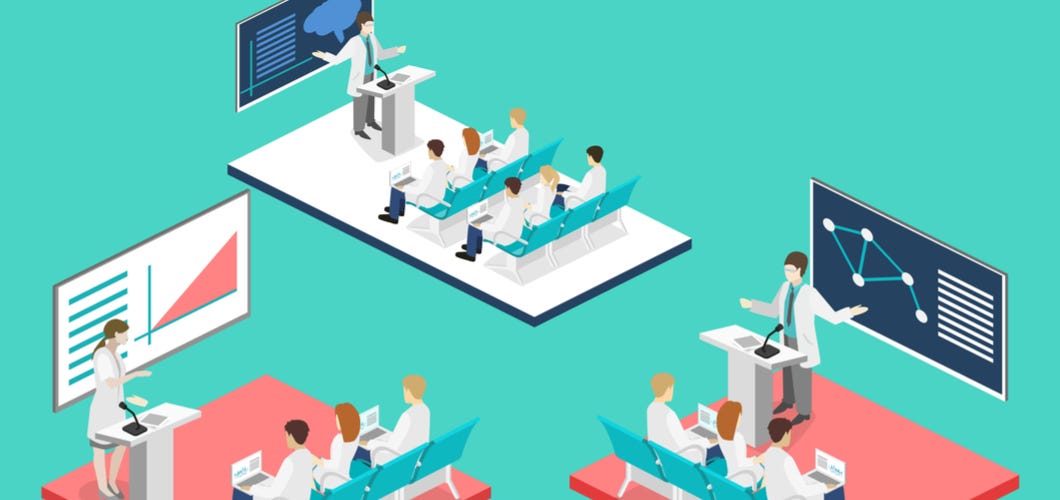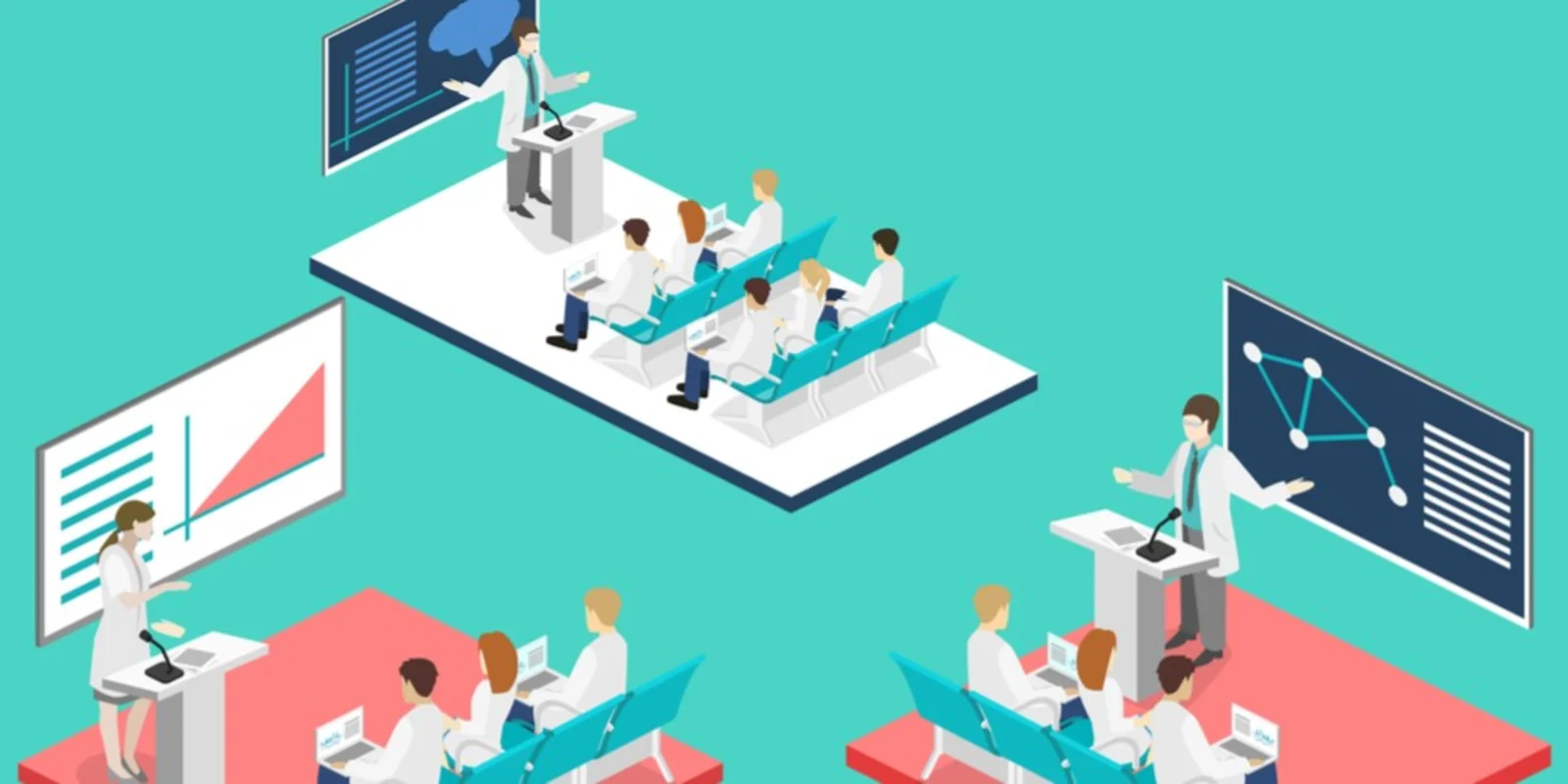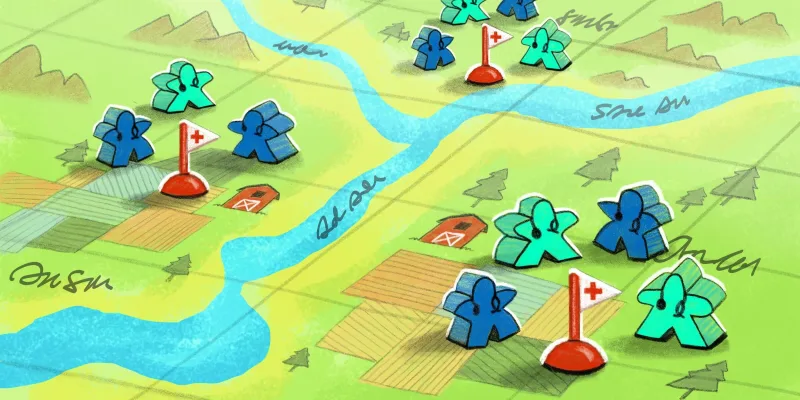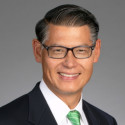
The American Academy of Physician Assistants (AAPA) held its 2018 annual meeting in New Orleans, LA last month (May 19–23). As the only national conference for physician assistants (PAs), the annual meeting brought together nearly 7,000 attendees.
In association with AAPA, the Louisiana Academy of Physician Assistants works to promote PAs in their professional pursuit of excellence and to strengthen their role in health care delivery through public education, continuing medical education, physician education, member services, PA student involvement and legislative efforts.
Doximity had a chance to catch up with Louisiana Academy of PAs President Sarah Deyo, who attended and participated in the conference. Below is an excerpt from the interview.
--
Doximity: How long have you been a PA and what motivated you to become a PA?
Sarah: This is a second career for me — I’ve been a PA for 10 years now. Before I was a PA, I was a healthcare information systems consultant and I was responsible for implementing electronic health records all over the country. I loved that role.
I got to travel around the country, but I always felt kind of misplaced. I knew I wanted to be on the frontlines of patient care. It just so happened that my husband got a job in Louisiana and I guess I kind of had a little bit of a personal career crisis, where I couldn’t keep traveling, and I found a PA school in Baton Rouge, LA that was a perfect fit.
Doximity: Do you have a specific speciality that you practice?
Sarah: I practice in Pediatrics. But I only practice one day a week because now I’m the program director of the local PA school in Baton Rouge at Franciscan Missionaries of Our Lady University. So, I have a dual role where I practice, but I manage full-time academia.
Doximity: Is that how you decided to go into a leadership role at the Louisiana Academy of PAs?
Sarah: I got involved in the state organization about 3 years ago in 2015 when we were trying to advance our practice in helping with legislative efforts. I hadn’t really been involved prior to that point. I got to know people on the board and leadership in the state. I have gotten progressively more and more involved because I believe firmly that we need to be expanding here in Louisiana because we have such a physician shortage and access to care issues here. Our state is not known to be much of a trailblazer and we’re in desperate need of advocating on behalf of the profession and our patients here, so it’s something in the past few years that I’ve become really passionate about.
Doximity: Did that lead you to attend the AAPA conferences? Was this year your first time attending the meeting?
Sarah: It wasn’t my first, but it was nice that it was in my backyard this year. The conference was only an hour away, which was fantastic. I had a role at several of the events at the conference this year.
AAPA is a great way to network with other PAs and hear about what the national organization is doing, which was tremendous this year. The offerings have been great in terms of providing clinical information, such as updates on heart failure and diabetes. They also do a really great job of including more advanced projects and procedural skills like bedside ultrasounds, injections, diagnostic skills, etc. It’s really great to have that opportunity.
Doximity: Would you say the meeting is more helpful for your practice personally or more helpful while you are teaching at the university?
Sarah: For me, I really want to develop an ultrasound training module at my university — not just for our students, but because it’s becoming more and more commonly used at the bedside. It’s a great offering for our continuing education PA students.
Doximity: Were there any particular sessions or speakers that stood out to you at AAPA 2018?
Sarah: The general update that was given to the masses and delivered by President and Chair of the Board L. Gail Curtis. It was so exciting to hear what’s going on at the national level, in terms of advocating for the profession and modernizing state laws.
Our national agenda called Optimal Team Practice is what our legislative body in the House of Delegates had passed as of last year to help modernize our PA laws. It’s sort of the guide for state legislation. So it was exciting to hear the update that now 22 states have incorporated components of Optimal Team Practice to make things easier for PAs to practice.
I also went to several educational sessions. One that I particularly enjoyed was on clinical prefecting. It’s typical for clinical prefectors to work with students and it’s really hard for us as a program to develop clinical sites. We have four clinical prefectors because those taking on students tend to look as it as another responsibility in their day, which is already somewhat overextended. That session had a lot of great tips on incorporating students without disrupting your productivity day-to-day on the basis of responsibility.
Doximity: Sure, so the session was able to show you how to integrate students into the workflow.
Sarah: Absolutely.
Doximity: One aspect of the conference we heard about was there were a few competitions. Did you or your students participate in one of these competitions?
Sarah: Our students couldn’t participate because of the timing — they have just started clinical rotation. But the Challenge Bowl is always fun and high-energy, students love it. It’s so fun to go, the energy in the room is great.
Doximity: Compared to past AAPA conferences, how did this one differ? What did they improve upon?
Sarah: Maybe I’m a bit biased here, but I loved that it was in New Orleans. The culture of the city makes it a great place to have a conference because the city itself is so hospitable and full of history. They incorporated that NOLA flare — we had a second line before the general session. As a New Orleans tradition, it’s a jazz band parade that’s really fun.
The conference specifically made a significant effort to give attendees more venues to meet outside of the meeting session. They had small-group roundtable session, almost like speed dating, to go and meet different PAs and talk about things that were unique to their PA practice and to healthcare, as well as network.
It seems like what they’re trying to do is make it more intimate. It’s a large conference — the only national PA conference — but there were lots of opportunities to meet in small groups. To me, that was the biggest standout this year from previous conferences.
Doximity: Do you have any important takeaways from the conference that you’d like to share with people who may not have been able to attend?
Sarah: Well first, it’s so important to be a member of AAPA. If you aren’t attending regularly or keeping up with the professional organization, then you’re missing out. Our national organization is really working hard to advocate for us. I was blown away by everything the AAPA has done in the last year. I can’t vocalize enough: become a member.
It’s just a great way to connect with other PAs. We’re all very busy in our day-to-day lives. There are some speciality-specific conferences, but by not going to AAPA you could lose connection to your roots and the larger profession.
Doximity: Is there anything you’d like to see at next year’s conference?
Sarah: It’d be great to see more small-groups and receive more state updates at next year’s meeting.
--
That’s a wrap for AAPA 2018! The 2019 annual meeting will take place at the May 18–22 in Denver, CO.






